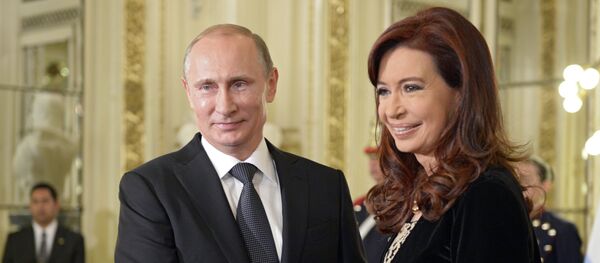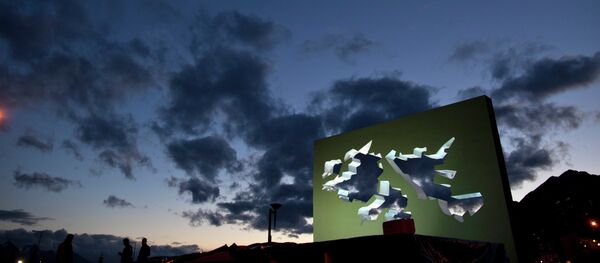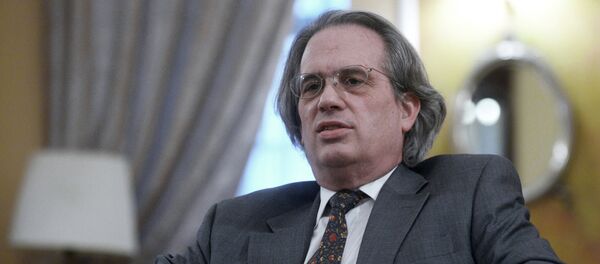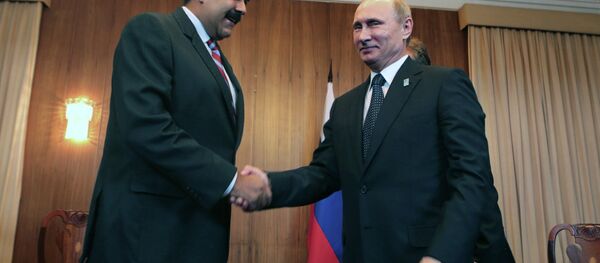Sola argues that Argentinian President Cristina Kirchner is to blame for the supposed sharp shift in the country's foreign policy, noting that she has broken with her predecessors, who had considered Latin America, Brazil, the United States and Europe as the country's key partners. The journalist argues that the partnership with Russia and China is a tremendous strategic mistake, claiming that China is "attempting to turn Argentina into its colony," and noting that it is "inexplicable why Buenos Aires needs Russia at all," given that "in the economic sense, Russia presents no interest at all, with the possible exception of the military sphere."
The journalist argues that Kirchnerism, the political philosophy of Cristina and her late husband, former president Nestor Kirchner, leads to an "unpredictable" and "isolationist" policy, noting that Argentina's traditionally strong ties with the US, Italy and Spain have suffered a deterioration over the past 12 years. After 2010, when then-Secretary of State Hillary Clinton "publically declared that she would never again step foot on Argentine soil…Argentina was excluded from the agenda of world leaders, with the exception, of course, of Russia and China."
Exaggeration and Alarmism Aside…
As for Russia, despite growing economic contacts over the past decade, intensified last year by Russia's sanctions and counter-sanctions war with Europe and the US, the country still has a long way to go in becoming one of Argentina's top trade partners. Russian exports to the Argentina accounted for $900 million, or 1.3 percent of the country's total, while imports have yet to break the top 20.
In economic terms, the United States remains among the Argentina's top five trade partners, while the nations of South American trading bloc Mercosur and other Latin American states make up nearly 40 percent of exports and a third of imports, with Brazil remaining by far the country's largest trading partner. Overall, this amounts to a healthy and diversified trade relationship.
Argentinian Ambassador to Russia Pablo Tettamanti recently told Russian media that the nations of Mercosur and the Russia-led Eurasian Union project have great prospects for growing economic cooperation, noting that "the EEU is an important partner," and adding that the Argentinian side played a very active role in negotiating an increase in ties between the two blocs.
Ultimately, both economically and politically speaking, the strengthening of Argentinian partnerships with emerging political and economic powers around the world cannot be said to amount to a rejection of old ties and relationships on Argentina's part. Rather, the cooling of relations with the US or certain European countries serves only to show old imperial powers' sour grapes over Argentina's growing economic and foreign policy independence. As the decade-long drama over Venezuela has recently shown, with the country now classified by Washington as a full-fledged pariah state, the fear mongering and alarmism shown by Argentina's conservative opposition over Argentina's place in the world serves only to support the black and white attitudes prevalent in Washington that if a country pursues a policy of neutrality and independence, it is a potential foe.
Mr. Sola himself admitted that Kirchner has been able to take political advantage of recent US and European mistakes in policy toward Latin America, noting that high-handed US statements about Venezuela posing a threat to national security, together with Britain's recent beefing up of its military presence on the disputed Falklands/Malvinas Islands territory, only serve to drive Argentina further away from traditional allies and benefactors.
President Kirchner is set to come to Moscow on a three day visit later this month; her visit is expected to result in the signing of an array of agreements on economic cooperation.





